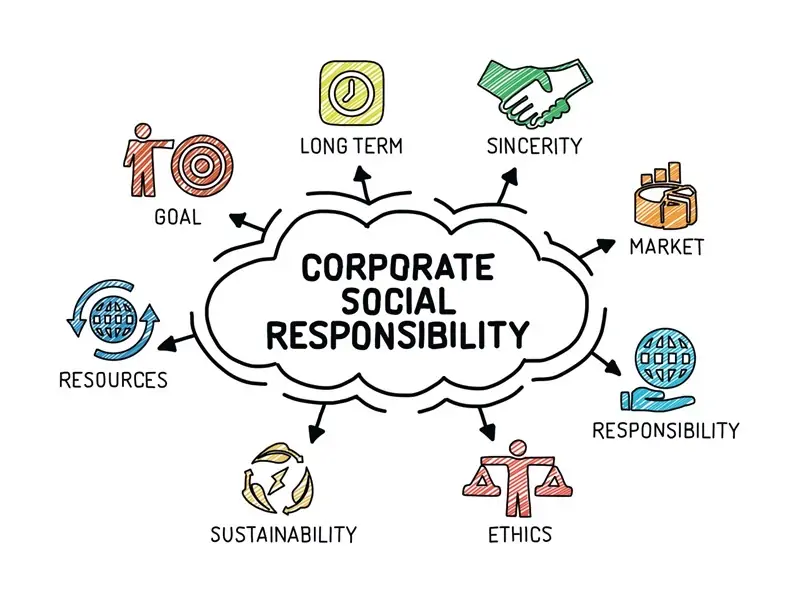What is Corporate Social Responsibility (CSR)?
Corporate Social Responsibility, or CSR, refers to a company’s self-regulated initiatives that aim to create a positive social and environmental impact alongside pursuing economic success.
In simpler terms, it’s about businesses considering the broader effects of their operations and actively working to be a force for good.
The Rise of CSR and Decarbonisation:
In recent years, CSR has become increasingly important for businesses operations. Here’s why:
- Government Regulations: The UK government has implemented stricter environmental regulations, pushing businesses to reduce their carbon footprint. This includes the legally mandated minimum EPC rating of E for rented or sold commercial properties.
- Consumer Demand: Consumers are becoming more environmentally conscious and are increasingly likely to choose brands that prioritize sustainability.
- Investor Interest: Investors are increasingly looking at a company’s CSR practices alongside financial performance. Companies with strong sustainability commitments are often seen as more attractive investments.
How CSR Leads to Decarbonisation:
Decarbonisation refers to the process of reducing carbon dioxide emissions released into the atmosphere. Companies can integrate decarbonisation efforts into their CSR strategies by focusing on areas like:
- Energy Efficiency: Investing in energy-efficient technologies, buildings, and appliances can significantly reduce a company’s carbon footprint.
- Renewable Energy: Shifting reliance from fossil fuels to renewable energy sources like solar, wind, or hydro power can significantly reduce carbon emissions.
- Sustainable Supply Chains: Collaborating with suppliers who prioritise sustainability practices helps to reduce the overall carbon footprint within the supply chain.
- Employee Engagement: Promoting environmentally-friendly practices among employees, such as cycliing incentives paper waste, can contribute to overall emission reduction.
Benefits of Decarbonisation for Businesses:
- Cost Savings: Improved energy efficiency often translates to reduced energy bills.
- Enhanced Brand Reputation: A strong commitment to decarbonisation can improve a company’s brand image and attract environmentally conscious customers and investors.
- Reduced Regulatory Risk: Companies that proactively adopt sustainable practices are less likely to face penalties due to non-compliance with future regulations.
- Future-Proofing: Decarbonisation positions businesses as leaders in a transitioning energy landscape.
Examples of CSR Initiatives for Decarbonisation in the UK:
- A clothing brand invests in renewable energy sources to power its manufacturing facilities.
- A supermarket chain partners with local farms that utilize sustainable agricultural practices.
- A tech company implements a remote work policy, reducing employee commuting emissions.
By integrating decarbonisation into your CSR initiatives, businesses in the UK can contribute to a cleaner environment, build brand loyalty, and ensure long-term success in a sustainability-focused future.
